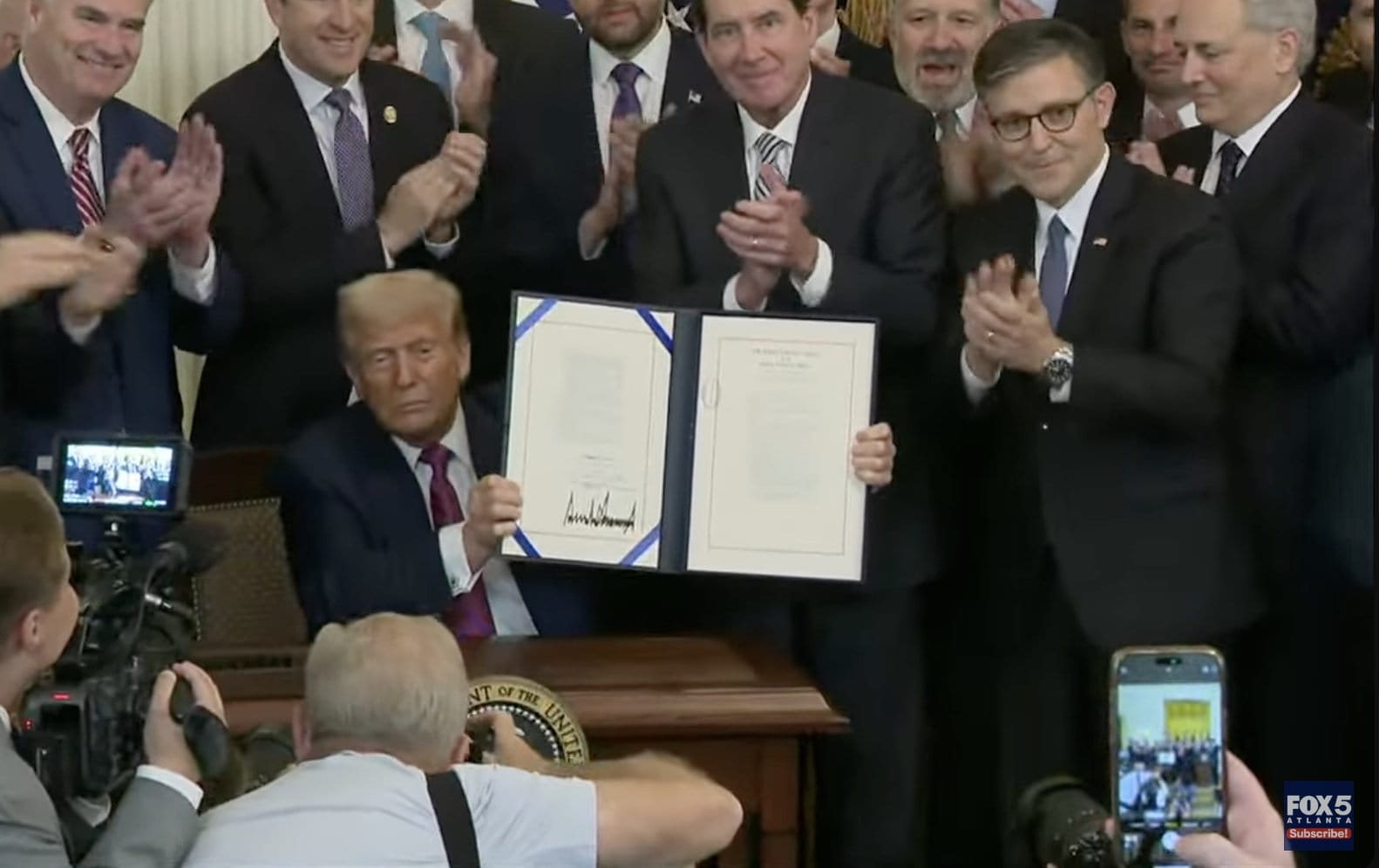President Donald Trump signed the GENIUS Act into law on July 18, committing that this law will ensure the United States' “global dominance” in cryptocurrency technology.
This is the first federal legal framework in the United States for stablecoins pegged to the US dollar. Speaking after the law was passed, Trump stated:
“Crypto has appreciated more than any stock. Crypto makes the dollar more valuable. Crypto is good for the dollar and for the country.”

He also emphasized that the GENIUS Act will help the United States lead in this field, while committing to approve a comprehensive framework law for the crypto market before the end of the year.
Senator Tim Scott, a senior member of the Senate Banking Committee, called this law “regulatory clarity for the stablecoin industry,” arguing that faster and cheaper payments will “strengthen the USD's dominant position worldwide.”
Treasury Secretary Scott Bessent also posted on X thanking Republican lawmakers in the House of Representatives for “keeping their commitment” to make the United States the “cryptocurrency capital of the world.”
Legal framework for stablecoins
The GENIUS Act establishes a federal framework for the issuance and supervision of payment stablecoins.
The Federal Reserve (Fed) will be responsible for licensing and supervising federally insured deposit-taking institutions. At the same time, companies licensed under state law may also issue stablecoins if they meet equivalent reserve, transparency, redemption process, and risk management standards.
Stablecoin issuers must be fully backed 100% by high-quality liquid assets such as cash, treasury bonds, or equivalent short-term government securities corresponding to the total amount of tokens in circulation. Periodic confirmation reports are also a mandatory requirement.
The law also mandates that banking regulators establish a schedule for periodic audits, ensuring users have the right to redeem stablecoins at par within a specified timeframe. Additionally, reserve assets must be segregated and not reused (rehypothecation), unless permitted by the customer in writing.
The final journey before signing into law
The House passed the GENIUS Act with a vote of 307 in favor – 122 against on July 17, just one day after voting again on the combined procedural package of three bills: the GENIUS Act, the CLARITY Act, and the Anti-CBDC Surveillance Act.
Initially, these three bills were consolidated on July 16 to expedite the voting process. However, this format was not eligible for submission to the President. Therefore, committee staff re-drafted the GENIUS Act into a standalone text for both the House and Senate to pass with the same content.
The Senate approved the consolidated text late on July 17, completing the bicameral process and sending it to the White House for the President's signature.
Notable statements
President Donald Trump: “Cryptocurrency makes our dollar strong and powerful. It is good for the dollar and good for America.”
“Cryptocurrency has appreciated more than any stock.”
Coinbase CEO, Brian Armstrong: The GENIUS Act is “the first federal law on cryptocurrency to be signed into law, and there will be many more laws to come.”
Treasury Secretary Scott Bessent: The GENIUS Act is a historic milestone that will “pave the way for the United States to lead the global digital currency revolution.”
